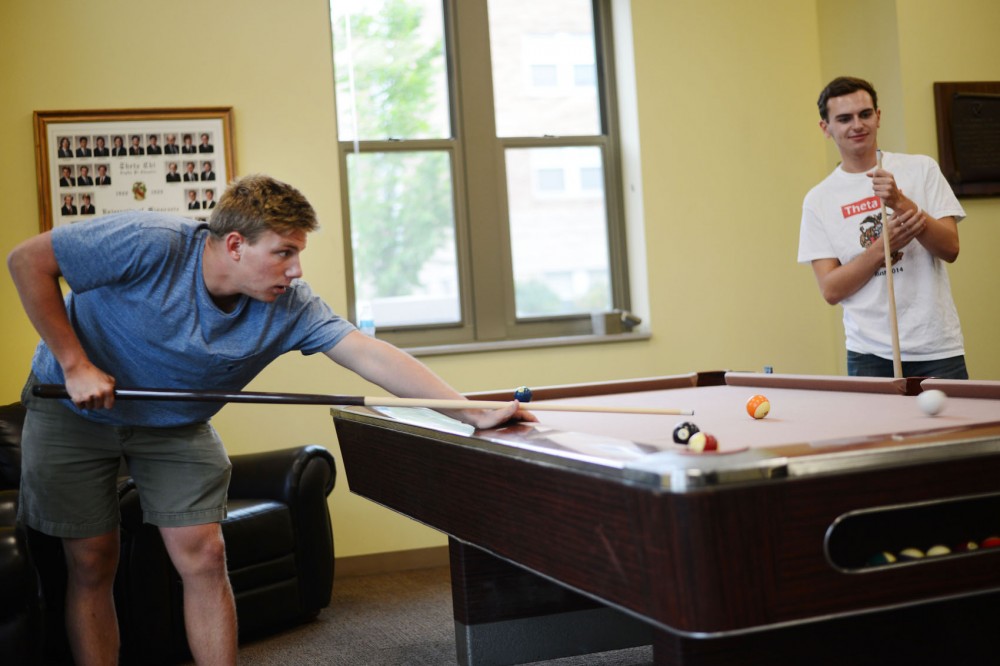With a year under its belt, the 17th Avenue Residence Hall has proven to be successful for two of the University of Minnesota’s greek chapters.
The residence hall — the home to both the Chi Omega sorority and the Theta Chi fraternity — has helped bolster the chapters’ recruitment numbers and gain recognition around campus.
But now, both chapters are making plans to find homes off campus.
Having spaces at the new dorm boosted students’ interest in the chapters and has helped them better integrate into the campus community, said Matt Levine, program director for the Office for Fraternity and Sorority Life.
After a report from the 2011 Greek Community Strategic Task Force revealed that the University had the lowest percentage of greek enrollment among Big Ten schools, Vice Provost for Student Affairs and Dean of Students Danita Brown Young began work on expanding greek life on campus. The chapters’ presence in the residence hall is part of that initiative.
Space in the dorm designated for greek organizations included separate chapter rooms, outdoor seating, a kitchen and bathroom, and a large area for meeting as a group.
“I think having their letters on a building and just having that increased visibility has been really nice for them,” Levine said.
He said the sorority’s own space was a big part of the success Chi Omega experienced this fall during its first formal recruitment.
Chi Omega President Lauren Hicok said the sorority exceeded its membership goal this fall, adding more than 50 members to the 90 it had from its informal recruitment in January.
Though Theta Chi has been on campus since 2012 and had already established a membership base, the fraternity also benefited from having its own space at the dorm, said the fraternity’s president, Nick Lambert.
The residence hall’s prime location across the street from campus serves as an ideal spot to get together, he said.
“Everyone lives off campus,” he said. “But the meeting space is a great place to hang out, and having that is awesome,” he said.
Though the recruitment process is still happening, Lambert said the fraternity is expecting an increase in bids this fall.
Theta Chi members hope to eventually move into a house off campus, Lambert said, but factors like costs and a shortage of large homes in the area make that goal difficult.
“The options are kind of limited in terms of a house that would be large enough for us,” he said.
Hicok said Chi Omega also wants to get a bigger space as it continues to add members and join the University’s other off-campus sororities.
“Chi Omega is actively searching for a house and expects to have one within the next few years,” she said.
Levine said one of the most important benefits to being in the residence hall for the organizations has been the “reasonable price” of leasing the space.
He said moving out of the residence hall would depend on their sustained numbers in the coming years.
“Housing is expensive in our neighborhood … and I think every chapter wants to make sure that if they are going to make the investment, that it is not going to be a burden to their students,” he said.
Despite the challenges that may lie ahead for the chapters in terms of expanding, both are making the most of their time at the residence hall.
“For now, our members are grateful for the suite that we get to call home,” Hicok said.


